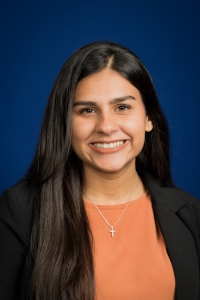Step 1 is notorious for being one of the most difficult, high stakes exams in a student’s academic journey to becoming a physician. Officially known as the United States Medical Licensing Exam Step 1, cordially known as “step”, either term sends shivers down the backs of first and second-year medical students all over the country.
You would think we (medical students) were used to standardized exams by this point. From our state metric exams, to AP/IB exams for many of us, then onto ACT/SATs, and of course, the infamous MCAT. We are familiar with the stresses and preparation needed for standardized examination, but that never makes it any easier, and each pass becomes increasingly difficult and more indicative of our professional trajectory.
In early 2020, the National Board of Medical Examiners announced that the 3-digit Step 1 scoring will transition to a pass/fail report at the earliest in January 2022. The controversy surrounding this decision has been amplified by healthcare leaders, academic physicians, and of course, our very own medical students. Let’s explore the arguments for and against this change and also delve into the experience of being a current 1st-year medical student with a lot of uncertainty about how to gear up for residency.
“Without a score, how will they ever stratify students?” ask the pro-graded Step 1 supporters.
For years before I was a medical student, I knew how important the Step 1 exam was. I was always given the advice to go to whatever medical school I felt like, crush the boards, and have my choice in residency placement. Of course, it is not this simple, but it was the advice that was passed down by many seniors, and for the most part, it seemed to hold true. Unfortunately for myself and thousands of other mid-cycle premeds, the NBME announced the change to pass/fail while we were applying and interviewing for medical school. Thus, a good amount of the advice that we were given on choosing between our admission offers was null and void.
With this in mind, it is understandable why the knee-jerk reaction is that the entire residency system will be in uncharted territory. From my (second-hand) understanding of the residency selection process, scores are a critical component of the match. Thus, there is clearly merit to the argument that the residency selection may transition to more subjective factors such as connections to the program, a student’s alma mater, interesting research pursuits, and other application components like their personal statement. Luckily, the second licensing exam, Step 2, exists and will likely maintain some of the objectivity in the section process.
“I am more than a number, and my application deserves to be looked at that way.” Agreed, future fourth-year me, agreed.
A student’s performance on Step 1 was largely correlated to their competitiveness in applying to residency. A top score could help a student land a spot in a top-tier program. A subpar score could keep a student out of their dream specialty or location. But it really was more than that. Each match cycle becomes increasingly competitive with the rise of new medical schools and a stagnant number of residency spots. Thus, any application component to help students stand out among other applicants is extremely valuable, scores being no exception.
The change is clearly controversial. Many are upset with the change since they had hoped for the opportunity to earn great scores as leverage to go to a great program. However, the possibility of change also brings chances for students with hundreds of volunteer hours or great publications to get noticed. Regardless, I would just offer that not knowing whether or not the exam will be graded adds unnecessary anxiety to an already strenuous journey.
Recall, the announcement stated the change would take place “at the earliest” in 2022. So, current 1st-year medical students who are on track to take the exam in 2022 still do not have confirmation of the grade reporting. This exam covers almost 2 years of preclinical educational material. In other words, it is an end-of-level “boss” of exams that clearly takes a lot of time and energy to prepare for. It is the equivalent of about 30,000 flashcards (I wish I was exaggerating). Thus, I would just shed light on the fact that MS1’s must be mindful of their future exam experience, pursue research opportunities, and prepare for a potentially unprecedented match cycle in the near future. Also, we started medical school in the middle of the COVID pandemic.
Truthfully, I do not know if Step 1 “should” become pass/fail. I do not know if the benefits will outweigh the risks or vice versa. What I do know is that I am currently supposed to be studying for my nervous system block, and we can all benefit from taking life one day at a time right now.
USMLE Official Article
Miranda Yousif is a member of the class of 2024 and hails from sunny Phoenix, Arizona. She is a proud Iraqi- American and first-generation college student who graduated from Arizona State University in 2020 with a Bachelor's degree in Biological Sciences. She is excited to attend her hometown institution, give back to the Phoenix community, and be an active member of the Arizona medical community.


